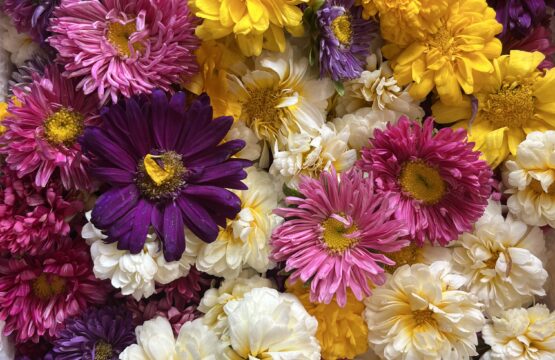- Empty cart.
- Continue Shopping
Sacred Blooms: The Significance and Beauty of Fresh Pooja Flowers

In many cultures around the world, flowers play a significant role in religious and spiritual practices. They are not merely decorative elements but are regarded as sacred offerings symbolizing purity, devotion, and auspiciousness. Pooja, a traditional prayer ritual, is enriched by the presence of fresh flowers, which add an enchanting fragrance and vibrant colors to the spiritual ambiance. In this blog, we delve into the world of fresh pooja flowers, exploring their significance, types, and the spiritual experience they evoke.
Symbolism and Significance
Fresh pooja flowers hold deep symbolism in various religious traditions. Each flower carries its own significance and is associated with different deities or aspects of spirituality. For example, the lotus symbolizes purity and enlightenment in Hinduism and Buddhism, while the rose represents love and devotion in Christianity. Understanding the symbolism of flowers adds depth to the spiritual experience during pooja, allowing devotees to connect with their beliefs and express reverence.
Fragrance and Spiritual Ambiance
The enchanting fragrance of fresh flowers is believed to uplift the mind and create a serene and divine atmosphere during pooja. The natural scents of flowers like jasmine, rose, and marigold infuse the surroundings, creating a sensory experience that enhances concentration, meditation, and spiritual connection. The aroma of these blooms is thought to purify the environment and awaken the senses, allowing worshippers to immerse themselves fully in the prayer ritual.
Types of Pooja Flowers
Various types of fresh flowers are commonly used in pooja rituals, each carrying its own significance. Here are a few examples:
Jasmine: Known for its sweet fragrance, jasmine is considered sacred and is often used in honoring deities and during marriage ceremonies.
Marigold: Vibrant and auspicious, marigold flowers are associated with prosperity and are used in festivals, prayers, and ceremonies.
Rose: Symbolizing love and devotion, roses are offered to deities and are often used during weddings and religious occasions.
Lotus: With its divine beauty and association with purity, the lotus flower holds immense significance in spiritual practices and is offered to deities.
Rituals and Offerings
During pooja, fresh flowers are used as offerings to deities, symbolizing devotion and gratitude. They are arranged in beautiful garlands, floral bouquets, or as loose petals, adorning idols, altars, and sacred spaces. The act of offering flowers is a way to express reverence and seek blessings, fostering a deeper connection between the devotee and the divine.
Preserving Sacredness
To maintain the sacredness of fresh pooja flowers, it is important to handle them with care and dispose of them properly after the ritual. Many traditions emphasize the significance of not wasting flowers and encourage their recycling by using them as compost or releasing them into natural bodies of water, symbolizing the return of the offerings to nature.
Conclusion
Fresh pooja flowers not only add beauty to religious rituals but also enhance the spiritual experience, creating an atmosphere of tranquility, devotion, and connection with the divine. Their symbolism, fragrance, and vibrant colors uplift the senses and help devotees express their devotion and gratitude. By embracing the significance of fresh pooja flowers, we can truly immerse ourselves in the spiritual journey and find solace in their enchanting presence during sacred rituals.


